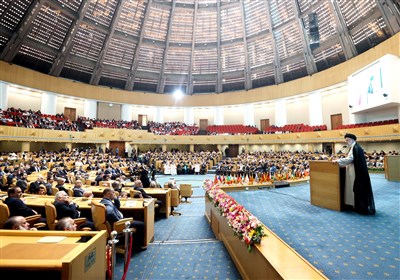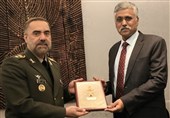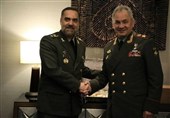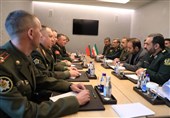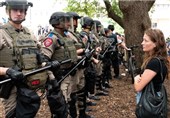Kabul Massacre: Bomb Blasts or Suicide Attacks?
KABUL (Tasnim) – While Afghan officials blame Saturday blasts in Kabul on suicide bombers, eyewitnesses offer a different interpretation of the incident, saying planted bombs went off in the demonstration, throwing doubt on the central government’s ability to ensure security of peaceful protests.
At least 80 people were killed and hundreds more injured after three explosions struck a large demonstration march in the Afghan capital on Saturday.
The peaceful protest was staged by Hazara people, a Shiite minority making up an estimated 9% of the Afghan population.
According to a spokesman for the Afghan interior ministry, 231 people were wounded, though this figure could still rise.
The attacks marked the deadliest in Kabul since 2001.


While the Afghan government usually points the finger of blame immediately at the Taliban after such terrorist attacks, there was no hint of the Taliban’s role this time.
Moreover, Taliban Spokesman Zabiullah Mujahid issued an early statement to strongly condemn the attacks, describing them as a plot for creating rift in the Afghan society.
The mainstream media, however, quoted Amaq, thought to be the Daesh (ISIL) terrorist group’s news agency, as reporting that Daesh has claimed responsibility for the blasts.
But the point is that Amaq is not an official agency for the Daesh militants and that it even pulled the report off the website after 30 minutes.
Tasnim’s reporter in Kabul, who had been in the crowd since the beginning of the rally, has gathered surprising information on details of the incident after talking to eyewitnesses and some of the injured.
Eyewitnesses at Deh Mazang Square, where the explosions happened, say explosive devices had been planted at some places beforehand. They said an ice cream cart and a motorcycle went off in the crowd, without anybody spotting any suicide bomber at the scene.
These reports, however, differ from Afghan intelligence officials’ narration of the event. They claim the attacks were carried out by three suicide bombers dispatched from Daesh’s eastern stronghold in Achin district.
The tragic attacks were also preceded by security warnings by Afghan officials, who had held the demonstration leaders accountable for any possible incident hours before the rally.
According to Tasnim dispatches, Afghan army helicopters were also hovering above the crowd as soon as the peaceful protest began and security forces were in control of the situation.
Protesters have suggested two hypotheses about the bloody incident in interviews with Tasnim, blaming the central government for the deaths of Shiite people in both cases.
They say government elements might have planned the bombings, which supports the idea that explosive devices went off in the crowd.
Some others, however, argue that suicide bombers were behind the attacks, but again denounce the Kabul government for its failure to ensure the security of citizens despite all security warnings by local and foreign forces.


According to a western official, the head of Afghanistan’s intelligence service had earlier this week tried to persuade the protesters to cancel the event. There is also criticism that the government had focused on keeping protesters away from the city center instead of providing security of the rally.
At a previous demonstration in late 2015, protesters who attempted to scale the wall of the presidential palace were shot at.
On Saturday, to keep the demonstration away from the palace, authorities blocked central roads, forcing protesters to gather at Deh Mazang Square, about two miles from the palace.
Hazaras have historically suffered discrimination and persecution in Afghanistan.
The Saturday protest was held against government plans for a major power project to bypass Bamiyan, a predominantly Hazara province in the central highlands. Following similar protests in May, Afghanistan’s president, Ashraf Ghani, established a commission to look into the issue but government attempts to find a compromise failed. On June 19, a contract was signed to build a smaller electricity line through Bamiyan, which did not placate Hazara activists.


